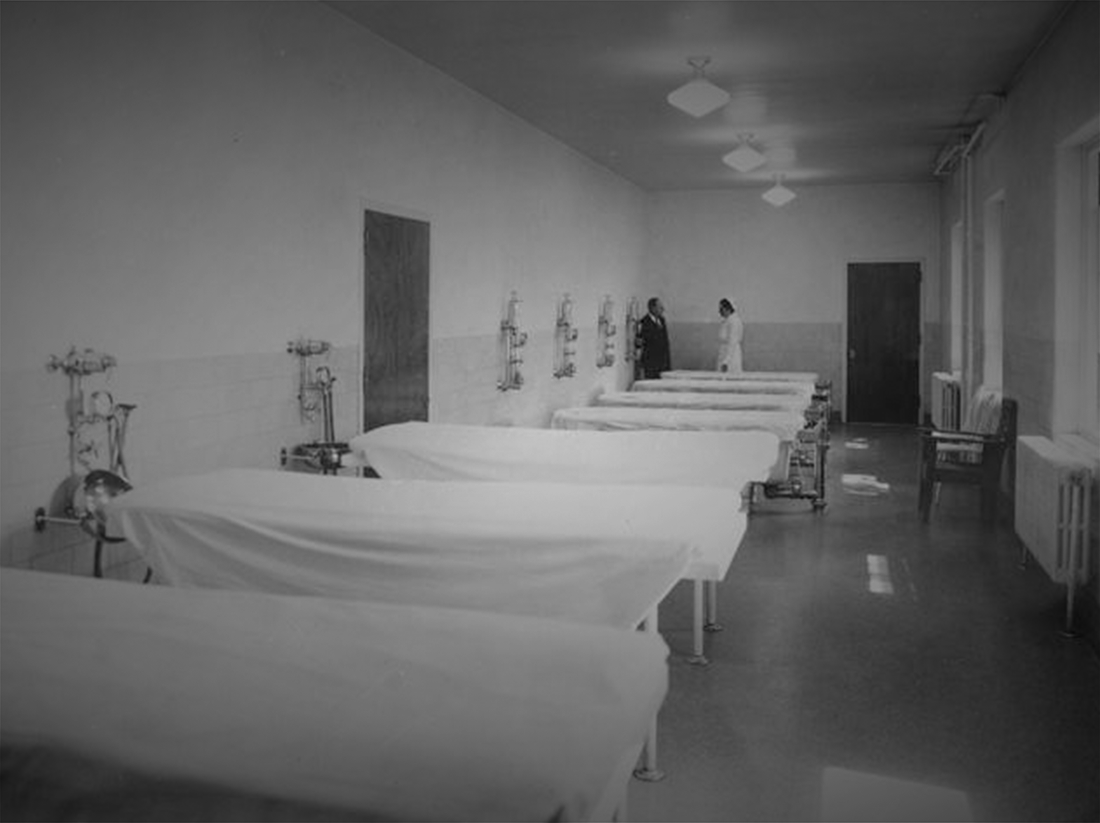MINIMALLY ADEQUATE
“An untreated mental health issue leads to death just like cancer does.”
— Terra Griffin, former mental health supervisor at Donaldson Correctional Facility
The trial began with testimony from 24-year-old Jamie Wallace.
According to court records, Wallace had been diagnosed with bipolar disorder, schizophrenia, an intellectual disability and several physical disabilities.
His lawyers say he often slept in a dark cell by himself, with a thin mat to lay over a concrete block.
The federal judge overseeing the case would later write that “Wallace’s testimony, and the tragic event that followed, darkly draped all the subsequent testimony like a pall.”
“ Jail and prison [have] always been a default landing place for people with mental illness we didn’t know what to do with. ”
— Alisa Roth, author of Insane: America’s Criminal Treatment of Mental Illness
While Alabama battles in federal court over conditions of violence in state prisons, Episode 5 of Deliberate Indifference tells the story of a high-profile lawsuit that’s been going on much longer, about the treatment of people in prison with mental illness.
“If my son had got the proper care that he really needed, I believe Roderick would be living today. He wanted help. He reached out for help. From Montgomery to Washington, we called, we called and we called. We didn't get any help, at all.”
— Mary Abrams, mother of Roderick Abrams, who died by suicide at St. Clair Correctional Facility
“So long as ADOC’s current staffing levels persist, people with serious mental-health needs are not safe in Alabama’s prisons, but are at daily serious risk of deprivation, decompensation, and death.”
— Judge Myron Thompson, Phase 2A Omnibus Remedial Opinion, Dec. 2021




